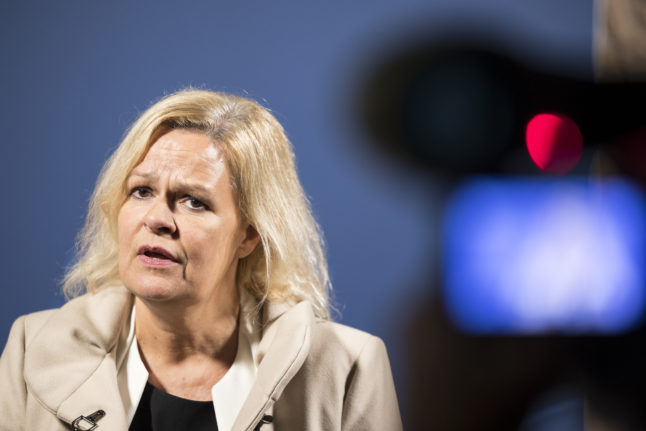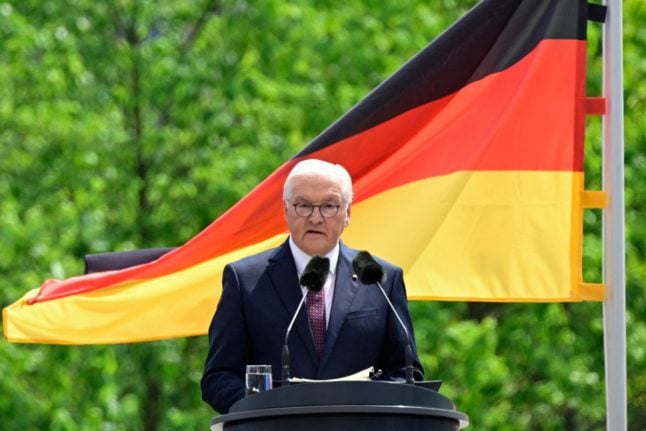Faeser “plans to travel on to Qatar” following a working visit to Turkey, the spokesman said.
The presence of officials at the tournament has been surrounded by controversy amid criticism of the organisers’ record on human rights and the treatment of migrant workers.
Faeser wanted to “support” the German men’s team in their opening game at the Khalifa International Stadium on Wednesday, the spokesman said.
“At the same time she has stressed that she wants to continue her dialogue with the Qatari government on domestic reforms, in particular the improvement of the human rights situation,” he said.
Faeser had previously described the award of the World Cup to Qatar as “very tricky”, and said “it would be better that tournaments are not awarded to such states”.
She already signalled her intention to be at the game against Japan following a trip to the Gulf state at the end of October, where she received assurances over the safety for LGBTQ fans.
Ahead of the tournament, the Danish government announced that no ministers nor Copenhagen’s ambassador would attend the opening ceremony or any matches.
Officially, the Danish Prime Minister Mette Frederiksen was busy building a new cabinet following her election victory earlier in November.
Olaf Scholz’s spokesman Steffen Hebestreit last week could not confirm that the chancellor would be in attendance were the German team to progress to the final.
In protest of the games, several sports bars around Germany have announced that they will not be showing the games, or using them to raise awareness of the human rights situation in Qatar.
READ ALSO: German football bars boycott ‘unacceptable’ Qatar World Cup
Former comments
The World Cup has been viewed with increasing scrutiny in Germany. Qatar will accept gay visitors but “they have to accept our rules”, former international footballer Khalid Salman said in a controversial interview with the Germany’s ZDF broadcaster earlier this month.
Salman also said homosexuality was “haram” — forbidden in Islam — during the interview, which was abruptly broken off after his comments.
Faeser called Salman’s comments “awful”. “That is also the reason why we are working to hopefully improve things in Qatar in the future,” she added.
READ ALSO: How a World Cup controversy started a human rights debate in Germany



 Please whitelist us to continue reading.
Please whitelist us to continue reading.
Member comments